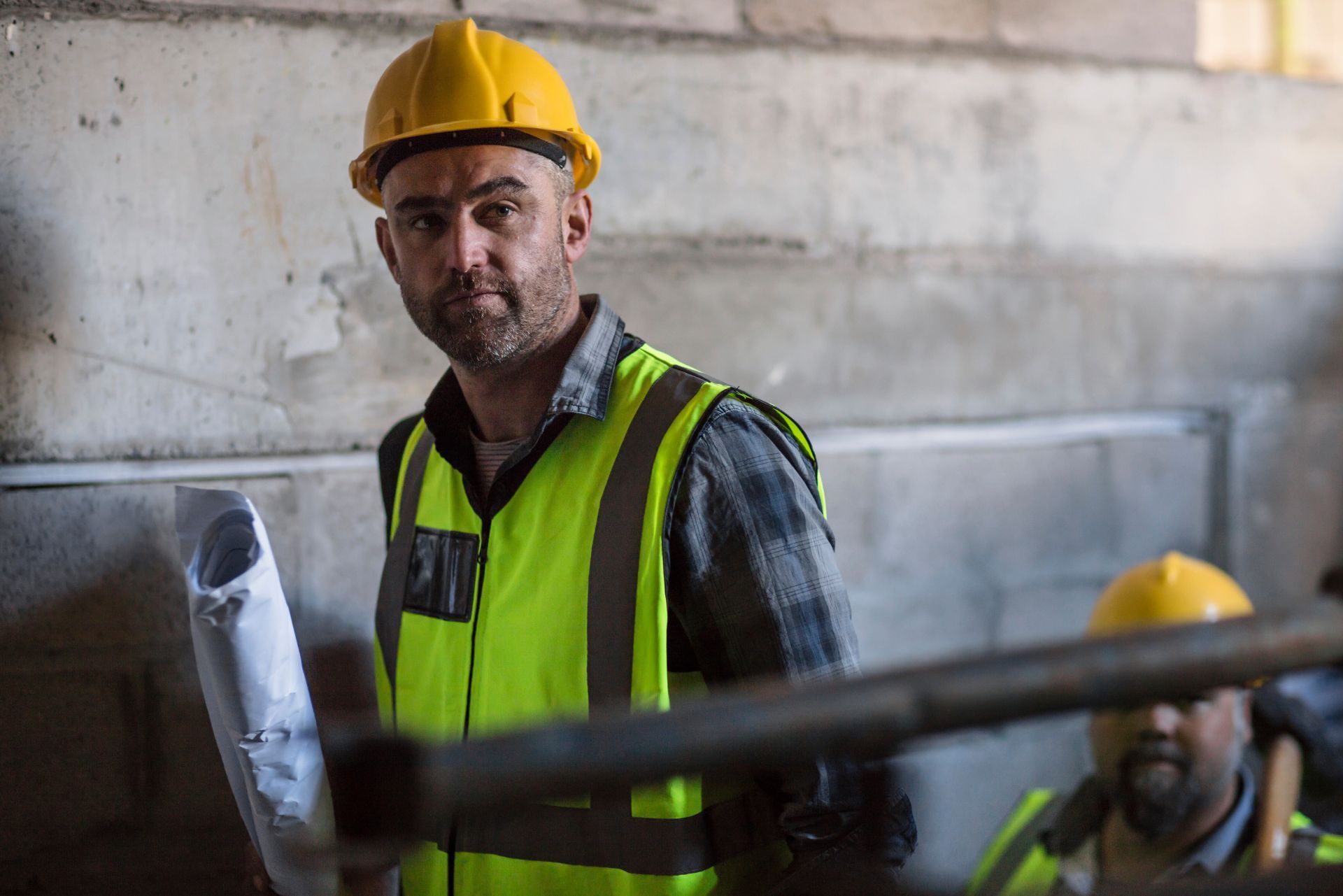Top 3 Recommended Policies

Operating a fencing contracting business in California comes with unique challenges and risks that require careful planning and protection. From navigating insurance requirements to managing potential litigation risks, fencing contractors must understand the insurance landscape to safeguard their operations and maintain trust with clients. This comprehensive guide covers everything you need to know about California fencing contractor insurance, helping you make informed decisions to protect your business effectively.
For fencing contractors in California, securing the right insurance coverage is not just a legal formality but a critical business strategy. According to Contractors Liability, general liability insurance premiums for fencing contractors with $1 million/$2 million coverage limits average around $3,950 annually. This figure provides a benchmark for what many businesses might expect to pay, though premiums can vary based on numerous factors.
Why Insurance is Essential for California Fencing Contractors
Fencing contractors face a variety of risks daily, from property damage and bodily injury to equipment theft and employee accidents. Insurance coverage acts as a financial safety net, ensuring that unexpected incidents don’t cripple a business financially. The nature of fencing work often involves heavy machinery and tools, which can lead to accidents if not handled properly. Additionally, contractors frequently work on-site in diverse environments, increasing the likelihood of unforeseen complications. This unpredictability makes having robust insurance coverage not just a smart business decision, but a necessary one.
In California, where construction defect litigation is on the rise, fencing contractors must be particularly vigilant. The 2025 Commercial Litigation Outlook report highlights an anticipated increase in construction defect lawsuits, which could directly impact fencing contractors involved in residential and commercial projects. Without adequate insurance, the cost of defending and settling such claims could be devastating. Moreover, the competitive nature of the fencing industry means that contractors must not only protect their own interests but also maintain a reputation that can withstand scrutiny. A well-structured insurance policy can provide peace of mind, allowing contractors to focus on delivering quality work rather than worrying about potential legal repercussions.
Building Trust Through Proper Insurance
Insurance also plays a key role in establishing trust with clients. Bob Easley, owner of California Fencing, points out that trustworthiness is a cornerstone of their business success. He states, “We pride ourselves on our trustworthiness, and that’s a big reason why our customers call us for more work and recommend us to others.” Having comprehensive insurance coverage signals professionalism and reliability, reassuring clients that the contractor is prepared for any unforeseen issues. Furthermore, clients often inquire about insurance before hiring a contractor, viewing it as a reflection of the contractor's commitment to safety and accountability. This expectation is particularly pronounced in California, where homeowners are increasingly aware of their rights and the potential risks associated with construction projects.
Additionally, the type of insurance a fencing contractor holds can also influence the types of projects they can bid on. Many larger commercial contracts require proof of insurance as part of the bidding process, making it essential for contractors to have the right policies in place. For instance, general liability insurance, workers' compensation, and equipment coverage are often prerequisites for securing lucrative contracts. By investing in comprehensive insurance, fencing contractors not only protect their businesses but also enhance their marketability, allowing them to take on a wider range of projects and ultimately grow their business in a competitive landscape.
Types of Insurance Coverage for Fencing Contractors
Fencing contractors should consider several types of insurance policies tailored to their specific risks and business operations. Understanding these coverages helps ensure comprehensive protection.
General Liability Insurance
General liability insurance is the foundation of any fencing contractor’s insurance portfolio. It covers third-party bodily injury, property damage, and legal defense costs related to accidents or damages caused by the contractor’s work. In California, the average premium for general liability insurance with $1 million/$2 million limits is about $3,950 annually, according to Contractors Liability. However, premiums can vary significantly depending on location, business size, and claims history. Additionally, having this insurance not only protects the contractor but also enhances credibility with clients, as it demonstrates a commitment to professionalism and safety.
Workers’ Compensation Insurance
Given the physical nature of fencing work, injuries on the job are a real risk. Workers’ compensation insurance covers medical expenses and lost wages for employees injured while working. This coverage is mandatory in California for businesses with employees and protects both workers and employers from financial hardship. Beyond the legal requirements, offering workers’ compensation can improve employee morale and retention, as workers feel more secure knowing they are protected in case of an accident. Furthermore, it can help fencing contractors avoid costly lawsuits that may arise from workplace injuries.
Commercial Auto Insurance
Many fencing contractors use vehicles to transport materials and equipment. Commercial auto insurance protects these vehicles and drivers in case of accidents. This coverage is essential to avoid personal liability and ensure business continuity. In addition to standard coverage, contractors may want to consider options like cargo insurance, which protects the materials being transported, and hired and non-owned auto coverage, which extends protection when employees use their personal vehicles for business purposes. Such comprehensive auto coverage can be a lifesaver in the event of an unexpected incident on the road.
Specialized Fencing Contractor Insurance
Specialist providers like
FencingInsurance.com offer tailored insurance packages designed specifically for fencing contractors. These packages often bundle general liability, workers’ compensation, commercial auto, and other relevant coverages to provide comprehensive protection at competitive rates. Additionally, these
specialized policies may include coverage for unique risks associated with fencing projects, such as equipment breakdown, theft, or even professional liability in case of design errors. By opting for specialized insurance, contractors can ensure that they are not only compliant with regulations but also adequately protected against the specific challenges they face in their industry.

Factors Influencing Insurance Premiums for Fencing Contractors
Insurance premiums for fencing contractors can vary widely, influenced by several factors that insurers evaluate when underwriting policies.
Business Location and Size
California’s diverse regions can affect premium costs. Urban areas with higher litigation risks or crime rates may see higher premiums. Additionally, larger businesses with more employees, equipment, and revenue generally face higher premiums due to increased exposure. For instance, a fencing contractor operating in a bustling city like Los Angeles may encounter different challenges compared to one in a rural area. The urban contractor might deal with more complex regulations, higher operational costs, and a greater likelihood of accidents or disputes, all of which can contribute to elevated insurance rates.
Claims History and Risk Management
Businesses with a history of claims or poor safety records typically pay more for insurance. Implementing strong safety protocols and maintaining a clean claims record can help reduce premiums over time. Fencing contractors can benefit from regular training sessions for employees on safety measures, as well as investing in high-quality materials and equipment that minimize risks. Furthermore, establishing a proactive approach to risk management, such as conducting regular safety audits and encouraging open communication about potential hazards, can not only foster a safer work environment but also demonstrate to insurers that the business is committed to minimizing risks.
State-by-State Premium Variations
A study by
ContractorNerd reveals that general liability premiums for fencing contractors can vary significantly across states, with potential savings ranging from 36% to 82%. This highlights the importance of shopping around and comparing quotes to find the best coverage at the most affordable price. Factors such as state regulations, the overall market for insurance, and the local economy can all play a role in these variations. For example, states with more competitive insurance markets may offer lower premiums, while those with stricter regulations might see higher costs. Additionally, understanding the specific risks associated with fencing work in different regions—like weather-related hazards or local wildlife—can help contractors better assess their insurance needs and negotiate more favorable terms with insurers.
Preparing for Construction Defect Litigation
Construction defect claims are an increasing concern in California’s fencing industry. These lawsuits can arise from alleged workmanship errors, material failures, or non-compliance with building codes. As the demand for fencing solutions grows, so does the complexity of projects, which can inadvertently lead to disputes. Factors such as soil conditions, weather impacts, and even local wildlife can affect the integrity of fencing installations, making it essential for contractors to be vigilant and thorough in their work.
Fencing contractors should be proactive in managing this risk by securing adequate insurance and engaging expert support when needed. The California Construction Expert Witness Group provides litigation support and expert witness services that can be invaluable in defending against construction defect claims. By collaborating with experts who understand the nuances of construction law and the specific challenges of the fencing industry, contractors can better navigate potential pitfalls and enhance their credibility in court.
Insurance Coverage for Litigation Defense
General liability insurance typically covers legal defense costs, but contractors should verify the extent of this coverage and consider additional policies if necessary. Having a knowledgeable insurance agent or broker can help ensure that all potential risks are accounted for. Furthermore, it is beneficial for contractors to regularly review their insurance policies to adapt to any changes in their business operations or the legal landscape. This proactive approach not only safeguards against financial loss but also fosters a culture of risk management within the organization.
In addition to insurance, maintaining detailed records of all projects, including contracts, correspondence, and photographs of completed work, can serve as a powerful defense tool. These documents can provide clear evidence of compliance with industry standards and contractual obligations, which can be crucial in litigation scenarios. Furthermore, implementing robust quality control measures and conducting regular training sessions for employees can significantly reduce the likelihood of defects arising in the first place, thereby minimizing the chances of litigation.

Additional Considerations for California Fencing Contractors
Beyond standard insurance policies, fencing contractors in California should be aware of other factors that can impact their insurance needs and business operations.
Earthquake Insurance and Natural Disasters
California’s susceptibility to earthquakes means that contractors should consider how natural disasters might affect their business. The California Department of Insurance provides reports and guidance on earthquake insurance, which can be relevant for contractors working on residential and commercial properties vulnerable to seismic activity. In addition to earthquakes, California is prone to wildfires, mudslides, and floods, each presenting unique risks that can disrupt operations. Contractors should assess their project locations and consider the potential for these events, ensuring they have adequate coverage to protect their equipment and workforce during such occurrences.
Customized Insurance Solutions
Providers like Wexford Insurance offer contractor insurance policies tailored specifically for fencing businesses in California. These solutions can cover various types of fencing installations, helping contractors find the right fit for their unique operations. Furthermore, many insurance providers now offer additional endorsements that can be added to existing policies, such as coverage for tools and equipment, which is crucial for contractors who rely on specialized machinery. By working closely with an insurance agent familiar with the fencing industry, contractors can ensure they are not only compliant with state regulations but also adequately protected against the diverse risks they face in their daily operations.
Conclusion: Protecting Your Fencing Business in California
For fencing contractors in California, insurance is a vital component of a successful and sustainable business. From general liability to workers’ compensation and commercial auto insurance, having the right coverage protects against financial loss and builds client trust.
With the increasing risk of construction defect litigation and natural disasters, contractors must stay informed and proactive in managing their insurance needs. Leveraging specialized providers and expert resources can help navigate this complex landscape efficiently.
Ultimately, investing in comprehensive fencing contractor insurance is not just about compliance—it’s about securing the future of your business and maintaining a reputation for reliability and professionalism in a competitive market.
Contact Us
Phone
Location




